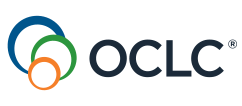Impacts and Reflections: Digital Stewardship Training Initiative

A pressing concern for staff working in tribal archives, libraries, and museums (TALMs) is appropriately managing and preserving the unique and diverse cultural heritage materials—digital and analog—that are in their care. Similar concerns often hold true for public libraries. Particularly for small, under-resourced public libraries, the creation and stewardship of digital collections can seem out of reach, even when there is significant interest in the digital preservation of local historical and cultural artifacts.
With support from a 2020 Laura Bush 21st Century Librarian grant from the Institute of Museum and Library Services, OCLC is partnering with Washington State University (WSU) to create the Digital Stewardship Training Courses for Tribal Archives, Libraries, Museums, and Small Public Libraries.
Expanding scope and access
In 2015, Washington State University’s Center for Digital Scholarship and Curation initiated the Tribal Digital Stewardship Cohort Program (TDSCP) as a hybrid online and in-person, cohort-based educational program to provide digital stewardship training and skills to TALM staff. The curriculum was tailored to meet the unique needs of its learners, with an understanding of and respect for the cultural contexts, processes, and leadership structures of each Sovereign Tribal Nation represented by the participants.
The Digital Stewardship Training expands the scope of the original TDSCP to also address needs of staff at small public libraries. This training scales the impact of WSU’s original program by creating on-demand, online courses that are free and accessible for all.
2021 DLF Forum Presentation: Reflecting on course impact and scaling training
In 2021, a panel of project staff and TDSCP cohort members presented a session at the Digital Library Federation (DLF) Forum.
2021 DLF Forum presentation video. Speakers: Selena Ortega-Chiolero (Museum Specialist, Chickaloon Village Traditional Council), Monique Tyndall (Director of Cultural Affairs, Stockbridge-Munsee Band of Mohicans), Mercy Procaccini (OCLC), Lotus Norton-Wisla (Digital & Community Outreach Archivist, Washington State University Center for Digital Scholarship and Curation)
In this presentation, TDSCP cohort members Monique Tyndall (Director of Cultural Affairs, Stockbridge-Munsee Band of Mohicans) and Selena Ortega-Chiolero (Museum Specialist, Chickaloon Village Traditional Council) share their experiences as participants in the original program, including how the training centered relationship-building and communication in culturally specific contexts, embedding a respect for community values while providing technology skills and knowledge about digital stewardship.
Mercy Procaccini (OCLC) and Lotus Norton-Wisla (Digital & Community Outreach Archivist at WSU’s CDSC), from the project team reflect on the process of adapting the original curriculum to online training for learners with a mix of shared and diverse needs, cultures, and contexts. They also highlight their methods for—and the challenges of—reproducing important outcomes from the original TDSCP training in the on-demand courses, such as building confidence and developing practices that center community needs and values, while underscoring the opportunities that online self-guided learning can provide.
Free and openly accessible
Update: The Digital Collections Stewardship on-demand courses are now available! While designed to meet the needs of staff at TALMs and small public libraries, the courses are freely accessible to all through WebJunction's Course Catalog, as well as on Washington State University’s Sustainable Heritage Network.
How can I stay up to date on this project?
Join us on April 26 for a webinar to learn more: Digital Collections at Your Library: Community, Culture, and Connection, and subscribe to our twice-monthly e-newsletter, Crossroads, for more details and announcements about the course.
This project is made possible in part thanks to support from OCLC, Washington State University, and the Institute of Museum and Library Services (project number RE-246364-OLS-20).
Learn more about the project: oc.lc/digital-stewardship



